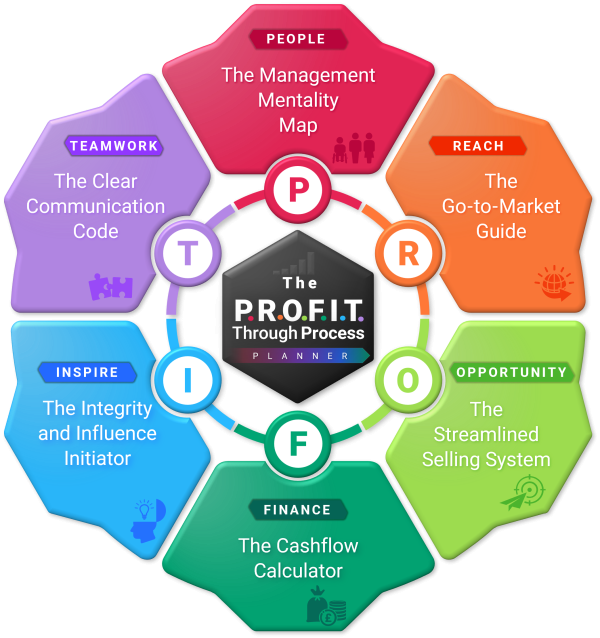Five lessons from a £100 million salesman.
Last week I completed training in the Professional Speakers Academy. There is much still to do and the techniques, like any process, must continue to be improved. But the teaching from ace mentor Andy Harrington is done.
Andy’s methods have earned over £100 million in sales for his business and many times this for his students. As such, while the instruction in public speaking is valuable, his tips on how to sell are more so.
Selling is digging a ditch and then providing prospects with a way to climb out. Consequently, Andy’s training has plenty of examples of what people and firms do wrong. Wasting time and money are on the list, but the big loss is a future in which nothing’s changed.
How will you feel a year from now, if you choose not to change?
Here are the five biggest takeaways for business that I’ve learned:
A frustration of the course is that it constantly changes. For example, each speaker prepares a Unique Business Solution (UBS) for the service they sell. This is mine.

A/B testing shows higher conversion rates when a sentence replaces the single word describing each stage. People becomes “Managing and motivating people.” So it’s back to the design studio.
Andy tests marketing copy, sales scripts, landing pages, the length, content, location and time of day of presentations and much more. His 50% upselling rate is miles ahead of the competition. This is because he never stops improving.
Remember, process is a tool to create a better outcome, not an outcome in itself.
When serving and selling clients you address different personalities. When presenting, this means varying stance, gesture and tone of voice. There are ways to appeal to each of the four adaptive strategies that subconsciously resist change.
Marketing copy must make the same broad appeal. Cold emails containing only data about your product are ignored by a majority of the potential buyers. They need an emotional approach.
When closing, you must be aware of the four adaptive strategies. Each aligns with one of the common objections of budget, authority, need and time.
The lesson is to adapt what you say, and how you say it, for your audience.
In live events Andy calls audience members to the stage. They win prizes that reappear later as part of his offer. On stage, the person reads out what they’ve won, effectively selling for Andy. Selecting the right audience member is a skill.
In webinar events, buyers register interest in joining the program. The sales team vets each one to ensure a good fit. People get turned away, especially during upselling of the more valuable year-long Academy. Nobody wants disruptive clients.
Learn to qualify your clients quickly.
Andy’s UBS is called the Serve and Sell System. He dropped the word Speaker after testing and to broaden the appeal. Focus on a niche first and then expand.
Giving by serving is an essential part of the process. This takes time. You must establish trust and credibility for people to spend thousands of pounds.
In the first ten minutes of a webinar, you show you understand the pains and gains of your audience. This makes them stay for the next part. Each step in any marketing campaign has a single aim of moving buyers through the sales process.
The next stage is either a personal or case study story. This is in three-acts presenting a challenge, a change of belief and a positive outcome. The audience sees vulnerability and recognises themselves in the plot.
The presentation is up to two hours, with lots of teaching and no obligation. The selling is interwoven with the content.
Serve first, sell later.
Clients go from webinar to Public Speakers University and then to Professional Speakers Academy. The last step is the most valuable to both Andy and his clients. While the aim is to convert as many people as possible, the Academy is only mentioned midway through the University.
Lesson: have an upselling strategy.
Most communication is non verbal and establishes trust and credibility when teaching. Words do matter however, and especially when selling and closing. Weaving sales prompts and objection handling into teaching content, is the pinnacle of the speaker’s art.
I’ve adapted many of Andy’s teachings into my program. I’d be happy to present it to you.
45% of startups don't survive their 5th year.
Half of founders are no longer CEO after 3 years.
Would you like to promote an article ?
Post articles and opinions on San Jose Professionals
to attract new clients and referrals. Feature in newsletters.
Join for free today and upload your articles for new contacts to read and enquire further.


